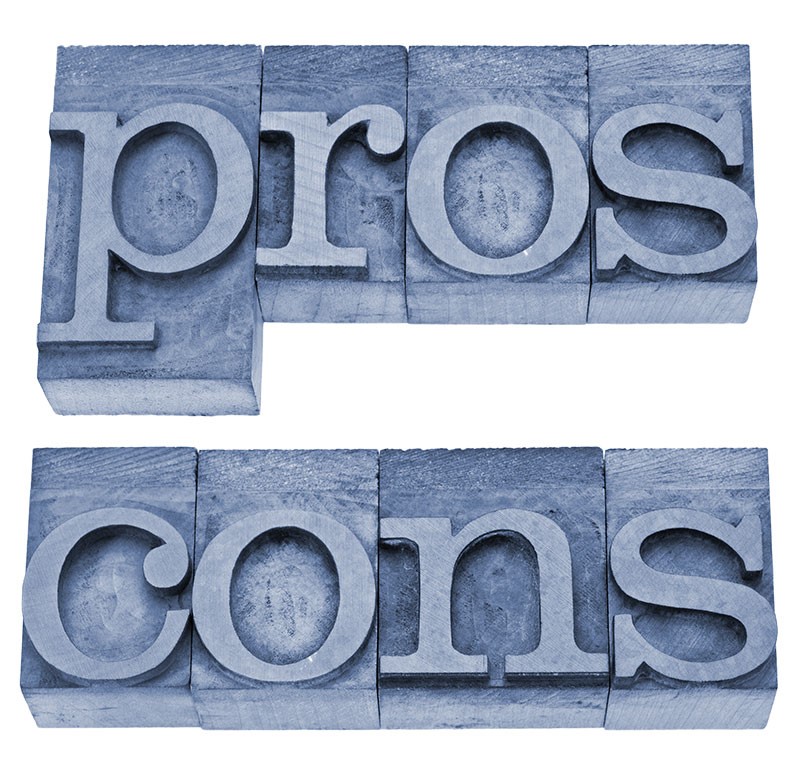In this article, we’re not holding back. We’ve outlined the risks of investing in property upfront. We’re not pretending that it is all smooth sailing. You can run and realise the opportunity costs later down the track, or you can learn how to best manage the risks so that you can gain the benefits that long term property investing will bring.
The secret to mitigating property investment risks is to stay the game for the long term and make your investment your trade.
On the go? Here’s 30 seconds of key take outs:
- The greatest opportunities you’ll come across throughout your life will also be the more risky choices. When it comes to investing risks can be managed and balanced by increasing your knowledge.
- Calculate the interest you can earn from a low risk term deposit of $50,000 with a bank at current fixed cash interest rates, to investing $50,000 in property. There is a substantial difference in outcomes, and risks.
- While investing in property carries risk, the benefits of a tangible, uncomplicated, tax deduction friendly investment strategy over a longer term, simply means actively managing risks by enhancing your knowledge about the property investment trade.Keep reading >>“The biggest risk is not taking any risk! In a world that’s changing really quickly, the only strategy that is guaranteed to fail is not taking risks.” – Mark Zuckerberg | Founder and CEO, FacebookThe greatest opportunities available to you in life carry risk. Don’t shrug off an opportunity because another option simply seems safer.What is opportunity cost?According to Investopedia, opportunity cost is the loss of a benefit because you turned down a choice, to take up an alternative course of action that turns out to be less favourable. In investing circles, it is the difference in return between a chosen investment and one that you passed up.To help illustrate what opportunity cost means, let’s compare keeping your money in a fixed term, interest earning cash account versus investing the same amount of money into residential real estate.Interest earnings on a cash investmentIf you invested $50,000 cash in a fixed interest term deposit, earning 2.5% over 12 months, you would earn $1,250 in pre-tax interest per annum.If you took that $1,250 and added it to your $80,000 income per annum plus, based on the marginal tax rate, your interest earnings post tax would end up being $819 per annum.Breaking this down further, if you earned $80,000 in the 2017 financial year, you’ll pay around $19,186 in income tax. Add the interest you’ve just earned from your cash deposit, the income tax payable will increase to $19,617. That effectively reduces your $1,250 to just $819 post tax.
#Standeasy tip: There are few taxation benefits available when it comes to interest generated from a cash deposit. So, while it may feel like a low risk way to keep your money in the bank and earn a bit of interest, the returns are limited.
Returns on a property investment
Let’s look at taking the same amount of money – $50,000, and investing it in property based on the following assumptions, you’re:
- earning an income of $80,000 per annum
- taking out an interest only mortgage at 5 % interest rate
- buying a brand-new property so you can claim full depreciation [Approximately $10,000]
- earning $400 per week in rental income from the property
- contributing a cash deposit of $40,000
- covering all the initial purchase related costs.
The purchase price of the investment property is $400,000 with the same annualised return of 2.5%. If you’ve done your property selection homework well, before investing, you could reasonably expect capital growth of $10,000 per annum compared to $1,250 from the interest from savings.
Because you’ll need to pitch in more with your cash flow initially, your pre-tax cash flow position is likely to be negative. Based on the figures above, your pre-tax cash flow position would be no more than -$5,000.
Being a brand-new property, you’ll be able to claim depreciation pre-tax [*$10,000], and this with the negative gearing short fall [$5,000] giving you a total $15,000 in tax deductions.
*Average depreciation claimed with the assumptions listed above. Please use as a guide only.
So now, if we calculate an estimation on your $80,000 per annum income, your tax payable will be reduced from $19,186 to approximately $14,015. Based from the negative gearing short fall plus depreciation taken away from your $80,000 per annum income drops you into a new marginal tax rate of $65,000 [Tax payable is now $14,015].
Compared to your $50,000 cash deposit earnings of $1,250, see how you’re already ahead with the tax credits of $5,171 which puts you in a neutral cash flow position, plus your capital growth which isn’t taxed is a bonus [unless you sell].
Let’s have a look at how the benefits of property investment can outshine the risks.
The benefits of investing in property
Property: a stable investment for the longer term
Investing in new residential constructions in the right location can be more stable than other types of investing provided you hold property for the longer term, and ride through the ups and downs of property cycles.
Property: an income producing asset
If you’ve researched well before buying a property for investment, you’ll have an additional income stream from good tenants.
Property: capital growth and associated benefits
As your well chosen property investment increases in value, you don’t get taxed on the capital gain unless you sell. In the meantime, you can tap into the extra equity you’re growing because your property is now worth more than when you took out your mortgage. To understand more about these investment concepts, read my blog article ‘Leverage, gearing, equity, wealth growing products. What the…?’
Property: a tangible asset
Few investments can compare to the tangibility of bricks and mortar. You’re investing into something you can physically see and touch.
Property: it’s simple and real
Shelter is a basic need. We’ve all had some experience in residential property, even if it’s just living in a house or unit. It’s real life stuff, not a complex, abstract investment formula. You don’t need any specific or specialised training to invest in property. That said, common sense and an appetite to learn and keep learning is a must.
Property: earns you tax deductions
Most of the property related expenses you’ll accrue throughout the year will be an offset against your taxable income.
The risks of investing in property
Property: high costs involved in real estate transactions
There is a high cost to invest into property and conversely a high cost to get out of property. To buy property you need to save up a deposit which will be around 10% of the value of the property you can afford. On top of that you need to allow for all the associated costs – of entry and exit. Those costs include stamp duty – a government charge based on the value of the purchase of land or established house; legal fees – you’ll need to engage a conveyancer; and your property / real estate agent’s fees and commission. Mortgage exit fees, particularly for fixed rate interest, can add a whack to your costs too.
Property: a slow transaction process
Property can take a long time to transact or take a long time to sell, depending on the stage of development your property developer and builder is at; or, if selling it depends on property demand and the market at the time. It can feel tediously slow, as quick transactions and property simply don’t go together.
Property: interest rates can go up
Depending on what is happening in the economy, interest rates can go up without much notice. Higher interest rates mean more money out of your pocket. It also means it can be harder to sell a property when interest rates are on the rise.
Property: a vacant property can be costly
If you’re in the property game for the long term, it will be inevitable that you’ll have to cover the full cost of holding the investment property without rental income in between tenancies.
Property: markets will fluctuate
Property markets can fluctuate after growth periods. Your property could be in a position where you owe more than what the property is worth. This is known as negative equity.
The good news about all of the risks mentioned above are that a long term investment strategy will mitigate these risks as you ride out economy and property market ups and downs.
The benefits of property investing long term outshine the risks, so what’s next?
Knowledge is your ally when it comes to balancing property investment risks and benefits. You’re already taking the right steps forward by reading this blog post.
If you’re still not convinced of the benefits of property investment, go grab a sheet of paper and a pen. Draw a line down the middle and add a ‘Pros’ heading on one side, a ‘Cons’ on the other. Start jotting down what you know. Explore our website, there are tonnes of free tools and resources to help guide your property education.
There is a lot to learn, and our team love passing on their knowledge. They love a chat. Getting face to face with experts in property can accelerate your learning.
Not part of our Pinnacle Program yet? Book in for your free Discovery Session by simply filling in this form.
Get some experts around you to help you on your way: Pinnacle Program Support
Free investor tools: Online property investment toolkit | Pinnacle Program Support | Pros and Cons of Property Investment PDF






